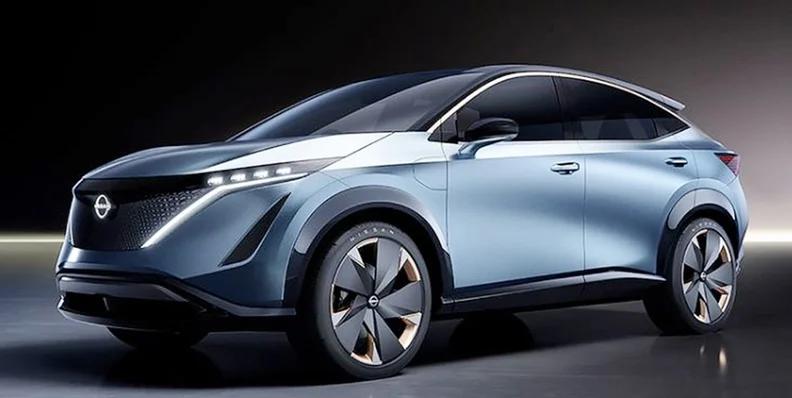Written by / Ma Xiaolei
Edit/Windsor
Design / Zhao Haoran
Source/Autonews
In response to the "invasion" of electric vehicle start-ups, traditional automakers have invested heavily in the transformation to the field of electric vehicles, and the Renault-Nissan-Mitsubishi Alliance is not far behind and has begun to deepen cooperation. Two people familiar with the matter revealed that the alliance plans to double the investment to jointly develop electric vehicles.
The three companies plan to officially announce the new investment plan on January 27, that is, to invest 20 billion euros in the development of electric vehicles over the next five years and to launch 30 new electric vehicles by 2030. According to people familiar with the matter, the alliance has already invested 10 billion euros in the field of electrification.
The 2030 plan, which was supposed to be announced in the fall of 2021, was postponed due to a surge in the number of coronavirus infections in Japan.
Nissan Ariya, a pure electric compact SUV based on the Renault-Nissan Alliance's CMF-EV platform, will be available in 2022. The company is also expected to announce a small all-electric platform▼

5 common platforms
A spokesman for the Renault-Nissan-Mitsubishi Alliance did not respond to a Jan. 23 request for comment.
According to a person familiar with the matter, the goal of the 2030 plan is to establish closer cooperation between the three manufacturers, emphasizing "shared electrification and mobile Internet". The 30 new vehicles will be based on 5 common platforms, which will cover 90% of the company's electric vehicles by 2030.
At present, 4 of the 5 general-purpose platforms have completed development and applied some models.
The first is the CMF-EV platform, which is used by models such as the Renault Megane E-Tech and the upcoming Nissan Ariya.
The second platform is mainly aimed at low-priced "rough cars" (low-cost cars that reduce all unnecessary configurations), such as the Dacia Spring and Nissan and Dongfeng Nissan models of the same type.
There are also two platforms that are mainly aimed at mini cars (in Japan, this type of car has a special name called kei car), as well as light commercial vehicles.
The fifth platform, called CMFB-EV, is expected to be developed around 2025 and applied to Renault's compact electric vehicles.
Nissan Micra has confirmed that it will use the CMFB-EV platform as well as other standardized components. At the same time, Renault is also expected to launch a same platform electric vehicle, and people familiar with the matter revealed that the Micra EV is expected to be launched around 2025.
Renault plans to launch a pure electric Renault 5 compact car by 2024, and said it will build another small car based on Renault's classic Renault 4L, which may be an SUV.
Affordable SUV
According to people familiar with the matter, reducing the cost of compact SUV to the level of gasoline vehicles in the same class is a common desire of the three companies. They also plan to share batteries and other critical components.
As part of the new investment plan, the alliance expects to jointly invest 220GWh of battery capacity in France, the United Kingdom, China and Japan by 2030.
Standardizing and sharing batteries, the cost of battery manufacturing from the three manufacturers may be halved. Nissan's solid-state lithium-ion battery technology will also be shared with two other alliance members.
The Renault 5 will be launched in 2024, pictured as a concept car. It is an affordable small SUV from Renault. Also on the same platform is a new version of nissan Micra▼
Renault's proposal for a full merger was divided with Nissan, and Ghosn's arrest in 2018 brought tensions between them to the public, putting french and Japanese manufacturers away from cooperation in technology and model development, according to people familiar with the matter.
All three companies have their own hybrid technologies, but they share few key components and systems. Cooperation between them in procurement and development is limited, and cost savings are becoming increasingly difficult to achieve.
It's unclear whether the coalition's leaders will consider making the hybrid part of the 2030 plan as well.
In November 2021, Nissan said it would spend $18 billion on accelerated electrification over the next five years, with 23 electrified models by 2030, including gasoline-electric hybrids and 15 pure electric vehicles. The company says half of Nissan's vehicles will be electrified by 2030, including pure electric vehicles and hybrids.
Renault also said that by 2030, the Renault brand will be fully electrified, but Renault executives told Reuters that this goal does not apply in markets outside Europe, nor does it apply to other brands in the group (such as Dacia).